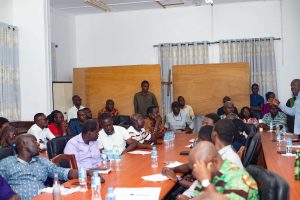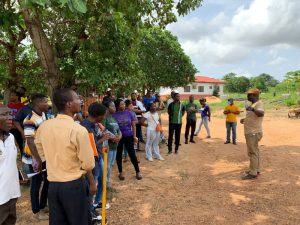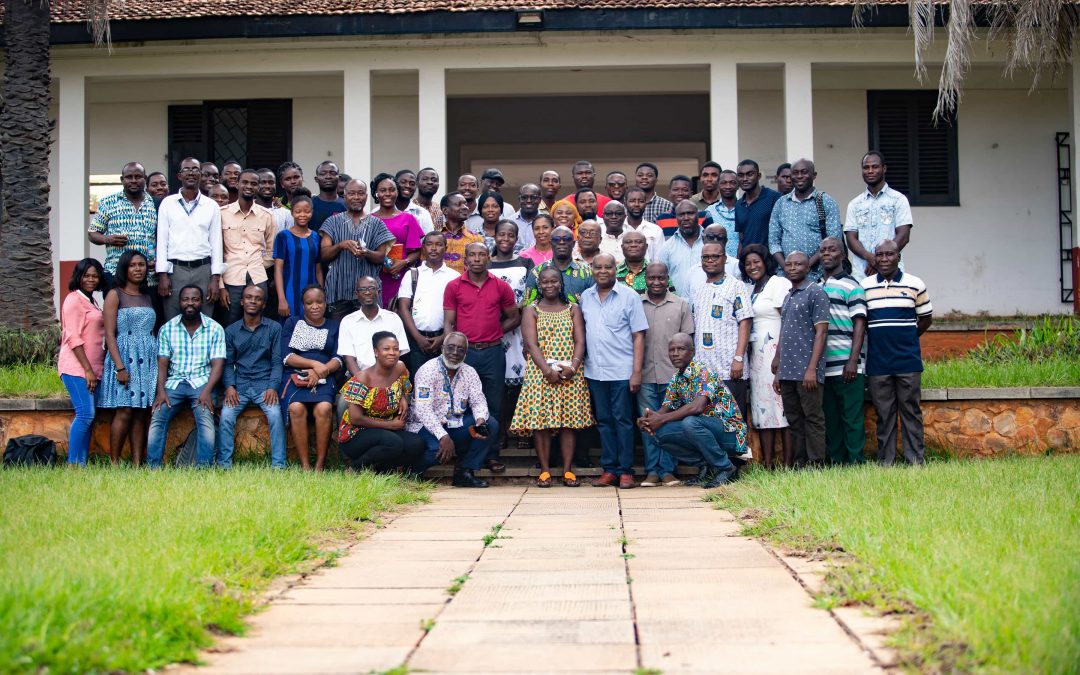More than 60 soil science students and technicians at the University of Ghana have benefitted from a three-day workshop on community-based agricultural science. Advocates for Community Alternatives (ACA) organized the workshop with the university’s Department of Soil Science from 10 to 12 May, with the aim of “Enhancing the capacity of scientists for community service.”
The participants, who were mainly MSc and PhD students and technicians attached to the faculty, learned traditional soil and plant analysis techniques, but through a community participation lens.
ACA’s Science Advisor, Dr. Kwabina Ibrahim, taught participants how to involve community members in the design of sampling protocols, discussed the presentation of technical data to communities, and the importance of validating results with local communities to ensure accuracy and uptake.

“This very workshop has enlightened me on a lot of things, especially with regards to how to involve a community in a science study,” said soil science PhD student Isaac Lartey Tawiah enthusiastically. “This participatory approach in the sampling process will ensure that the community members will accept and appreciate the results because they were involved in the process.”
Kwame Ocloo, an MPhil student in Soil Science, concurred. “The training was very helpful. We learned how to take the cell properties that we’re testing for in the field and apply the results of those tests to the farmers, how to explain to the farmers the meaning of those properties,” he said.

For Grace Karikari Akofo, a Technical Staff of the Material Science and Engineering Department, the program could not have come at a better time. “This is my first time of hearing about community science, and I think it’s something that will help me professionally as I will be able to interact with non-scientists, especially those without any training in science,” she noted. “When sharing sampling outcomes with a community, there is no need to use jargon. Rather, one must find innovative ways of breaking those jargons into simple and clearer messages with the help of chats when communicating with the people.”
At the close of the training, Dr. Daniel Etsey Dodor, the Head of the Department of Soil Science, expressed his gratitude to ACA for the opportunity for students and staff of the university to share knowledge and broaden their horizon on community-centered approaches to soil related issues and hoped that similar workshops would be organized in his department in the years to come.

Dr. Ibrahim, the ACA Science Advisor, expressed his organization’s commitment to collaborating with scientists to assist communities with scientific knowledge.
“Community participation in the production of scientific knowledge about their land, soil, and water is key to ensuring that they are in control of their own future, especially when they come under threat from extractive activities,” said Dr. Ibrahim. “ACA is thankful to the University of Ghana and the Department of Soil Science for helping us to ensure that young scientists are prepared to involve communities in their fieldwork.”

Recent Comments